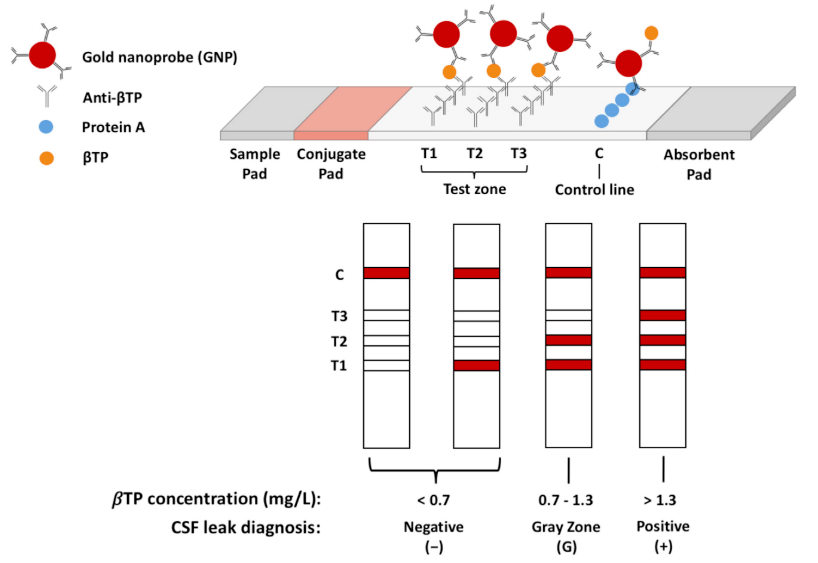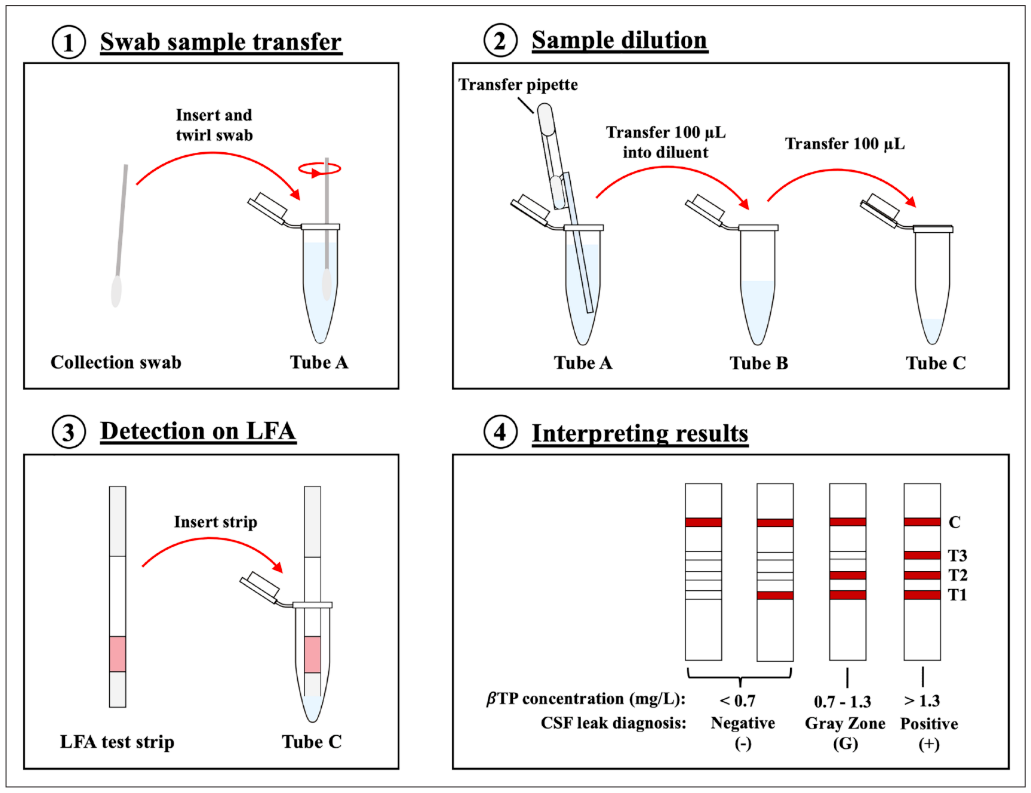Point-of-Care Cerebrospinal Fluid Leak Detection
Cerebrospinal fluid (CSF) leaks can occur when there is communication between the intracranial cavities and the external environment. They are a common and serious complication of numerous procedures in otolaryngology, and if not treated, persistent leaks can increase a patient’s risk of developing life-threatening complications such as meningitis. While the presence of a leak is often discerned in the emergent setting, distinguishing normal secretions from those containing cerebrospinal fluid can be difficult during postoperative visits in the clinic. The gold standard laboratory-based test typically requires that a sample be sent to a tertiary site for analysis, where days to weeks may pass before results return making it unsuitable for rapid clinical decision-making. Currently, there are no proven, available tests that allow a medical provider concerned about a CSF leak to inexpensively, rapidly, and noninvasively rule out the presence of a leak. To address this, our group recently developed a semiquantitative, barcode-style lateral-flow immunoassay (LFA) for the quantification of the rapid beta-trace protein, which has been reported to be an indicator of the presence of CSF leaks. Using this LFA we able to detect CSF that had been diluted in serum.
In a separate study we created a complete rapid diagnostic test kit composed of our previously developed barcode-style LFA, a collection swab, dilution buffers, disposable pipettes, and instructions. Our diagnostic kit for CSF leak detection can be operated by an untrained user, does not require any external equipment, and can be performed in approximately 20 min, making it well suited for use at the point of care. Validation studies demonstrated excellent predictive capabilities of this kit in distinguishing between clinical specimens containing CSF and those that did not. Overall, our test kit has the potential to influence the clinical decision-making process by preventing unnecessary workups for healthy patients and rapidly confirming the presence of leaks in unhealthy patients. Ultimately this will lead to improved management and treatment of CSF leak. This kit has the potential to transform patient outcomes.

